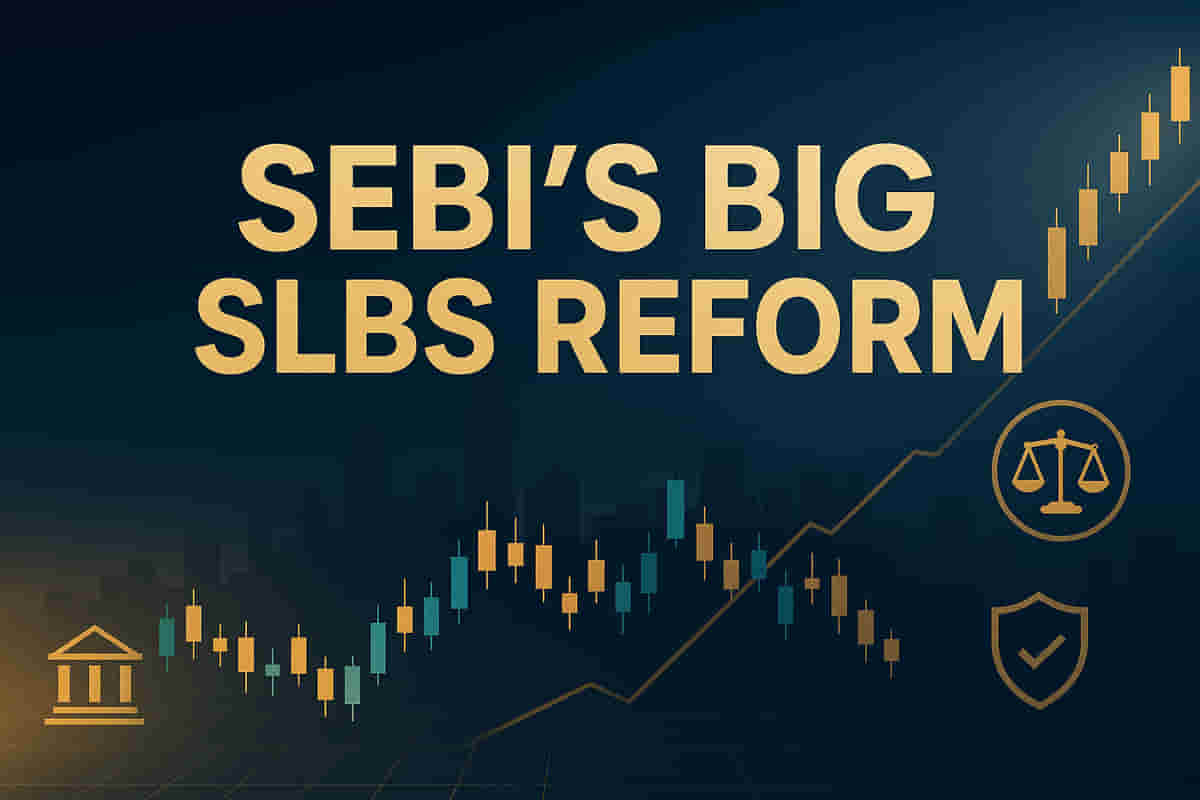SEBI's BIG Plan to Revamp Stock Lending! Are High Costs Killing This Trading Tool? 🚀
SEBI/Exchange
|
Updated on 12 Nov 2025, 12:33 am
Reviewed By
Simar Singh | Whalesbook News Team
Short Description:

▶
Stocks Mentioned:
Detailed Coverage:
The Securities and Exchange Board of India (SEBI) is set to comprehensively revamp the Securities Lending and Borrowing Scheme (SLBS), a mechanism that allows investors to lend their idle shares to others who wish to short sell them or meet delivery obligations. Launched in April 2008, the SLBS has failed to achieve widespread adoption, with only about 220 out of 1,000 eligible stocks actively traded on the platform as of recently. This tepid activity is a concern for SEBI, which aims to deepen the cash market and balance volumes with the booming derivatives segment.
Market experts attribute the scheme's lacklustre performance primarily to exorbitant costs and a significant lack of awareness among retail investors. To borrow a stock, investors must maintain a steep margin of 125% of the stock's market value, pay a monthly interest of 1.5-2% to the lender, and also bear an 18% Goods and Services Tax (GST) on this interest. This GST is often not claimable as input tax credit for certain participants, like proprietary traders, making the effective cost very high compared to trading in the futures market, which requires only a 20% margin.
Experts suggest several measures to revitalize SLBS. These include expanding the number of stocks available, rationalizing costs by potentially lowering margins (from 125% to 110-115%) and reducing the GST on lending fees. Some propose a shift towards an options-only model for certain stocks, similar to the US market, to facilitate hedging without naked short positions. Efforts are also underway by platforms like Dhan to improve product awareness among retail investors.
Impact: A successful revamp could significantly deepen India's cash equity market, improve price discovery for a wider range of stocks, and provide investors with more sophisticated trading and hedging strategies. It could also help narrow the significant volume disparity between the cash and derivatives markets. Rating: 7/10
Difficult Terms: * **Securities Lending and Borrowing Scheme (SLBS)**: A market mechanism where investors lend shares they own to other investors who borrow them, typically for short selling or to meet delivery obligations. * **Short Selling**: Selling a security that the seller does not own, with the expectation that the price will fall, allowing the seller to buy it back later at a lower price. * **Margin**: A deposit of money or securities required by a broker or exchange to cover potential losses from trading. For SLBS borrowing, it's 125% of the stock's market value. * **Cash Equivalent**: Assets that can be quickly converted into cash, such as money market instruments. * **Goods and Services Tax (GST)**: A consumption tax levied on the supply of goods and services in India. * **Input Tax Credit (ITC)**: A credit that allows businesses to offset GST paid on inputs (purchases) against GST collected on outputs (sales). * **Proprietary Trader**: A trader who trades financial instruments with the firm's own money, rather than the money of clients. * **Market Inversion**: A situation where futures prices are trading at a discount to the spot price of the underlying asset. * **Arbitrage**: A trading strategy that involves exploiting price differences in different markets or forms of the same asset to make a risk-free profit. * **Derivatives**: Financial contracts whose value is derived from an underlying asset, such as options and futures. * **Cash Market**: The market where securities are bought and sold for immediate delivery.
Stock Investment Ideas Sector

Market SURGES Back! Expert Reveals 3 Must-Buy Stocks for BIG Gains Today!

DIIs Unleash ₹1.64 Lakh Crore On Indian Stocks! Top Picks Revealed Amidst FII Exit - What's Next?

Market SURGES Back! Expert Reveals 3 Must-Buy Stocks for BIG Gains Today!

DIIs Unleash ₹1.64 Lakh Crore On Indian Stocks! Top Picks Revealed Amidst FII Exit - What's Next?
Industrial Goods/Services Sector

INDIA'S INVISIBLE GIANT AT A CROSSROADS: ABB India Fuels Digital Boom But Faces Profit Squeeze! Click to Uncover!
